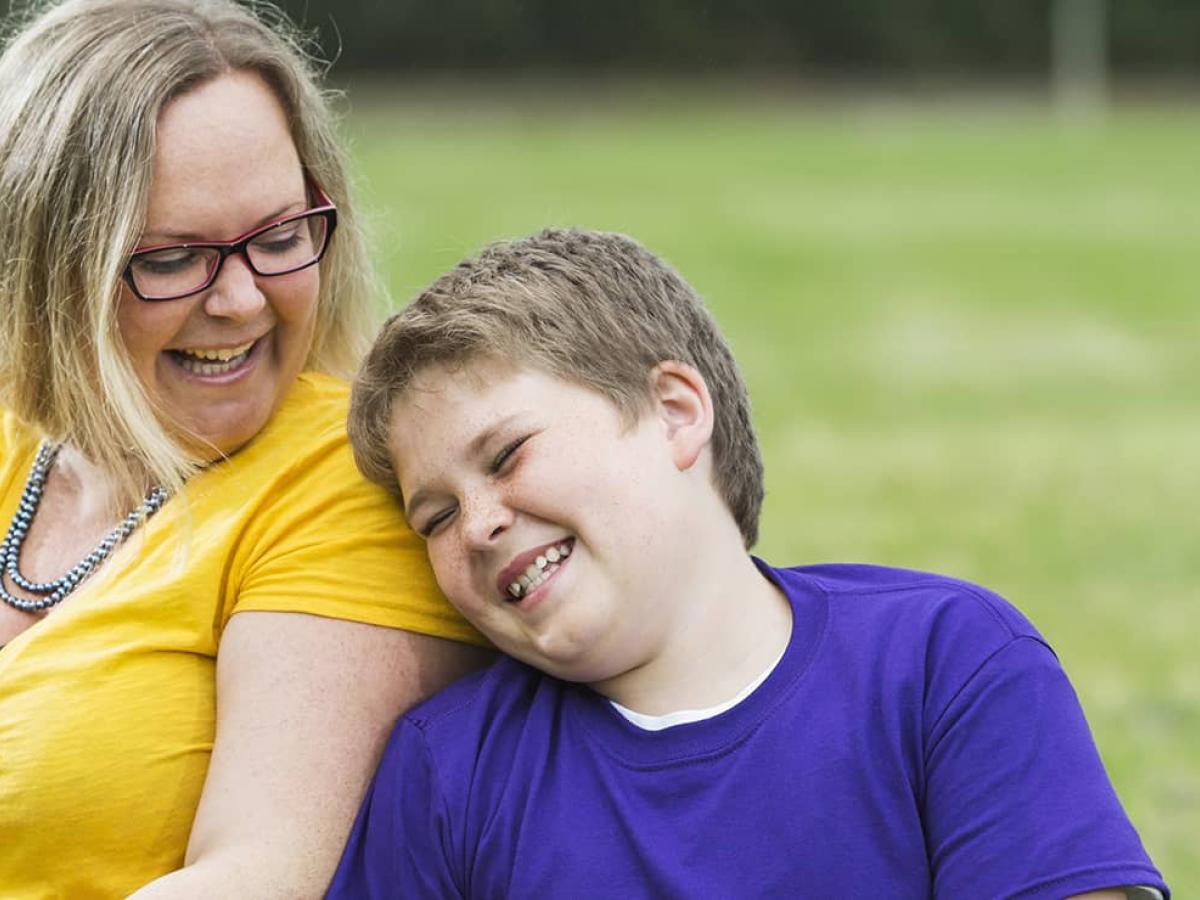December 27, 2021

It goes without saying, if you're a parent, there are going to be awkward conversations with your kid. Luckily, there's a lot of information available to guide you through the typical conversations about puberty, sex and drinking. But when it comes to talking to your child about weight, most parents aren't sure where to begin.
For guidance, we turned to Dr. Aneesh Tosh, who specializes in pediatrics and adolescent medicine. His advice: There are a lot of variables in terms of what is healthy and what is concerning when it comes to your child's weight. But if you and the pediatrician agree that your child's weight isn't as healthy as it could be, it's fine to talk with your son or daughter about it — as long as it's done in the right way. The conversation can even be a positive experience and may inspire some healthy habits.
Here's what you need to know:
Determining if your child is at a healthy weight
As parents, we're often told not to compare our children to others — there really is no "normal". But that makes it hard to determine whether your child's weight is healthy. Some kids are extremely active but don't have a lean body type. Others eat like a horse but don't seem to gain weight. Throw in growth spurts and genes from two different families, and it can get complicated.
The best way to know if your child's weight is healthy is to turn to your pediatrician. Your doctor will evaluate whether there is cause for concern after considering your child's body mass index (BMI), trends in body size, your family history and your child's age.
Healthy BMI for kids
BMI is the most common way to identify children whose weight may be concerning. For children and adolescents, BMI considers the child's weight, height, age and sex.
Like your child's weight percentile and height percentile, your child's BMI is calculated relative to other children of the same sex and age. Each percentile range corresponds with a different weight status:
- Underweight: Less than the 5th percentile
- Healthy weight: 5th to 84th percentile
- Overweight: 85th to 94th percentile
- Obese: 95th percentile or greater
Remember, your child's BMI percentile is just part of a bigger picture. Your pediatrician's full assessment provides the best indication of your child's health.
Health effects of being underweight, overweight or obese as a child
There are health concerns associated with any weight outside of the healthy range. At one end of the spectrum, childhood obesity can cause high blood pressure and breathing issues. Even children who are overweight but not obese increase their health risks later in life for conditions like obesity, sleep apnea and Type 2 diabetes. Meanwhile, underweight children face their own health challenges, which may include hormonal abnormalities or nutritional deficiencies. Any unhealthy weight can cause mental health issues for kids.
The good news is that there are steps you can take to help your child reach and maintain a healthy weight. But getting your child on board with a healthy lifestyle is the first step.
How to talk to your child about weight and health
The topic of weight and health is a sensitive one, especially if your child is already self-conscious about appearance. Dr. Tosh offers some tips to guide your conversation:
Work together with your child's pediatrician
Plan to have the conversation with the help of your pediatrician (or a registered dietitian recommended by your pediatrician). Not only will it help keep the conversation focused but having a medical professional may also reinforce to your child that this is about being healthy and not a personal attack.
Consider your child's age
As you think of what you'll say, remember to take your child's age into consideration. Adolescents may appreciate an explanation of the health risks associated with their eating habits. But younger children might just want to know whether they can still have dessert.
Keep the conversation positive
The focus of your conversation should always be about getting healthy as opposed to weight. Remember the goal is to create normal, healthy eating patterns. Avoid words such as "fat," "weight" and "calories." Be careful not to compare your child with a sibling because every kid grows at a different rate and time.
Listen to your child
Give your child a chance to share their feelings and really listen to understand what's going on. If your son or daughter opens up to you when you're alone, bring any concerns about mental health, bullying or self-esteem to your child's doctor. Around 5% of children have eating disorders, and your pediatrician can provide the resources your child needs to treat or prevent issues related to eating.
Set some healthy family goals
Direct the conversation to some healthy changes you'll be making as a family instead of suggesting your child go it alone. Consider health goals such as:
- Use the "5-2-1-0" rule daily:
- 5 servings of fruits and vegetables
- 2 hours or less of screen time
- 1 hour of physical activity
- 0 sugar-sweetened drinks
- Involve kids in meal prep: Whether your child needs to eat more or eat healthier, involve them in the planning, shopping and food preparation to encourage interest in eating the right food and more of it.
- Exercise as a family: Make physical activity fun by playing outdoor games with the entire family or scheduling one-on-one walking time with your child — the undivided attention may be enticing.
- Suggest a challenge or contest: Some kids are motivated by competition, and a fitness app or wearable tracker might get your child moving.
No matter what your family's health goals are, remember to start small and build from there. Think about simply removing sugared beverages or starting with just 15 minutes of exercise. And most of all, keep your eye on the prize: a happy and healthy family.
Next Steps and Useful Resources
- Need help with your child's weight management? Learn more about our Tigers on Track program, available for children aged 2 to 18.


